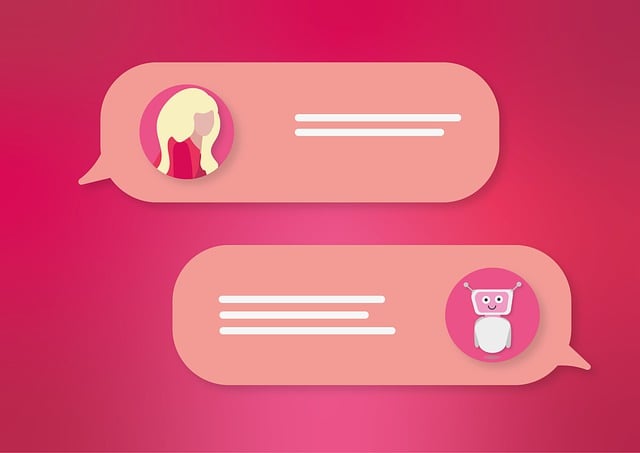AI chatbots online, powered by natural language processing (NLP), are transforming digital interactions. These intelligent assistants leverage algorithms and datasets to understand and generate human language, enabling seamless conversations on various platforms. Capable of handling diverse tasks from FAQs to travel bookings, they revolutionize customer engagement with round-the-clock support and instant responses. As NLP advances, the capabilities and accessibility of AI chatbots online are expected to grow, enhancing user experiences across sectors like retail, healthcare, and mental health support while addressing privacy, security, and ethical concerns.
“Discover the future of human-computer interaction with AI Chatbots Online. This comprehensive guide explores the fundamentals of these intelligent assistants, demystifying their inner workings. From understanding the basics of Natural Language Processing (NLP) to uncovering diverse applications, we delve into how NLP Chatbots are transforming industries.
Learn about their benefits, from enhanced customer service to improved accessibility, and navigate the challenges they present. By the end, you’ll grasp the immense potential of AI Chatbots Online and their pivotal role in our digital landscape.”
- Understanding AI Chatbots: The Basics
- How Do NLP Chatbots Work?
- Applications of Natural Language Processing (NLP) Chatbots
- Benefits and Challenges of AI Chatbots Online
Understanding AI Chatbots: The Basics

AI chatbots have become an integral part of our digital landscape, transforming how we interact with technology. These intelligent virtual assistants leverage Natural Language Processing (NLP) to understand and generate human language, enabling seamless conversations with users. At their core, AI chatbots use algorithms and vast datasets to learn patterns in text and speech, allowing them to respond accurately to a wide range of queries.
Whether you’re interacting with a customer service representative or seeking information online, AI chatbots are increasingly being deployed across various platforms, from websites to messaging apps. Their ability to process vast amounts of data quickly makes them efficient problem solvers, capable of handling tasks that range from answering frequently asked questions to booking travel arrangements. With continuous advancements in NLP technology, the capabilities and accessibility of these ai chatbots are only expected to grow, further enriching our online experiences.
How Do NLP Chatbots Work?

AI chatbots online utilize Natural Language Processing (NLP) to understand and respond to user queries in a conversational manner. They operate by processing text input, breaking it down into components like intent, entities, and sentiment, and then using complex algorithms to generate appropriate responses. This process involves several key steps: tokenization, where text is split into words or phrases; part-of-speech tagging, which identifies the grammatical structure; named entity recognition, allowing the chatbot to identify specific information; and sentiment analysis, determining the user’s emotional state.
Once these components are analyzed, the AI chatbot employs machine learning models to match the input with relevant responses from its vast database of knowledge. This enables it to provide contextually appropriate answers, learn from interactions, and even adapt its language to mimic human-like conversations. The result is a seamless experience for users who interact with these intelligent virtual assistants, making AI chatbots online increasingly popular across various industries.
Applications of Natural Language Processing (NLP) Chatbots

Natural Language Processing (NLP) chatbots have a wide range of applications across various industries, thanks to their ability to understand and generate human-like text. From customer service to healthcare, these AI chatbots online are transforming the way we interact with technology. In the retail sector, they power personalized shopping experiences by providing product recommendations and answering queries in real-time.
In the medical field, NLP chatbots assist patients by offering initial assessments, scheduling appointments, and even providing basic health advice. They also play a crucial role in mental health support, offering listening ears and helping users navigate stress and anxiety through conversational therapy. Moreover, these chatbots enhance accessibility for individuals with disabilities by converting text to speech or speech to text, making digital interactions more inclusive.
Benefits and Challenges of AI Chatbots Online

AI chatbots online are transforming the way businesses interact with their customers, offering numerous benefits that enhance customer experience and streamline operations. One of the primary advantages is their availability 24/7, enabling instant support and response times, which can significantly improve customer satisfaction. These bots can handle a high volume of queries simultaneously, reducing wait times and allowing human agents to focus on more complex issues. Additionally, they can be integrated across various platforms, providing a seamless and consistent experience across websites, apps, and messaging services.
Despite their advantages, AI chatbots online also present certain challenges. They rely heavily on accurate training data and sophisticated algorithms to deliver meaningful responses, and any gap in this process can lead to incorrect or inappropriate answers. Ensuring the chatbot understands context, nuances in language, and deals with ambiguous queries remains an ongoing challenge for developers. Furthermore, maintaining user privacy and security is paramount, as these bots often collect and process sensitive information. Ethical considerations regarding data usage and transparency are crucial aspects that need continuous attention to build trust among users.
Natural Language Processing (NLP) chatbots are transforming the way we interact with technology, offering a personalized and efficient user experience. As we’ve explored, these ai chatbots online can understand and generate human-like text, enabling them to engage in meaningful conversations. From customer service to healthcare, NLP chatbots are revolutionizing various industries, streamlining processes, and providing 24/7 support. While challenges remain, such as ensuring data privacy and maintaining contextual understanding, the benefits of AI chatbots online are undeniable. As this technology continues to evolve, we can expect even more sophisticated interactions that will shape the future of human-computer communication.
